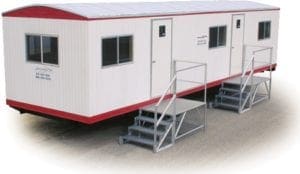The Consequences Of Poor Construction Site Safety
 The main reason why the Occupational Safety and Health Admiration (OSHA) standards are established is to safeguard the lives of the workers. However, adherence to the OSHA standards does not guarantee that you will have a 100 percent safe workplace. In fact, OSHA enforces the minimum standards that you should abide by in order to avoid incidents. Non-compliance with OSHA standards may invite undesirable incidents and a greater risk of injuries. Worker safety is every employer’s priority and if this is not the case, employers may end up experiencing the impacts of bad construction site safety in various ways. Investing in developing a safe and OSHA-compliant workplace is a better choice than spending a higher amount in fixing issues that may cause incidents due to the adoption of unsafe and inappropriate practices.
The main reason why the Occupational Safety and Health Admiration (OSHA) standards are established is to safeguard the lives of the workers. However, adherence to the OSHA standards does not guarantee that you will have a 100 percent safe workplace. In fact, OSHA enforces the minimum standards that you should abide by in order to avoid incidents. Non-compliance with OSHA standards may invite undesirable incidents and a greater risk of injuries. Worker safety is every employer’s priority and if this is not the case, employers may end up experiencing the impacts of bad construction site safety in various ways. Investing in developing a safe and OSHA-compliant workplace is a better choice than spending a higher amount in fixing issues that may cause incidents due to the adoption of unsafe and inappropriate practices.
With worker’s compensation insurance being an important cost element that may challenge an employer’s budget, you may want to make sure that you keep appropriate safety procedures in place so as to prevent incidents and the consequent insurance claims. A bone fracture incident may invite costs that may go well beyond $100,000. Compensating for this loss by closing additional business deals in today’s tight economy is not an easy task.
If you own a small business and if you operate with employees who do not have insurance coverage, you may be subjected to costly lawsuits that may lead to devastating financial impacts. If your uninsured employees file a lawsuit against you, then the legal system is most likely to support them. You will end up bearing expenses for legal proceedings and medical rehabilitation of your injured employees.
Incidents at your work sites will lead to construction delays. Incidents at a construction site demand employers and workers to follow certain procedures that affect the progress of the project. Investigations to understand the cause of the incident, work stoppages, and OSHA recordkeeping procedures interfere with the normal course of work and cause delays. Whether or not you will be financially penalised for missing deadlines, you will definitely end up ruining your professional reputation.
If you are handling large, lucrative, long-term projects, your company needs to show satisfactory Total Recordable Incident Rate (TRIR), Experience Modification Rate (EMR), and Certificate of Insurance (COI) limits. You will not be allowed to take part in the bidding process if your EMR and TRIR are high and if you are unable to provide a COI with acceptable limits. Even if you manage to deal with issues, such as insurance rate hikes, project delays, and lawsuits, you may really struggle to protect your company from getting banned from the bidding process.

Leave a Reply